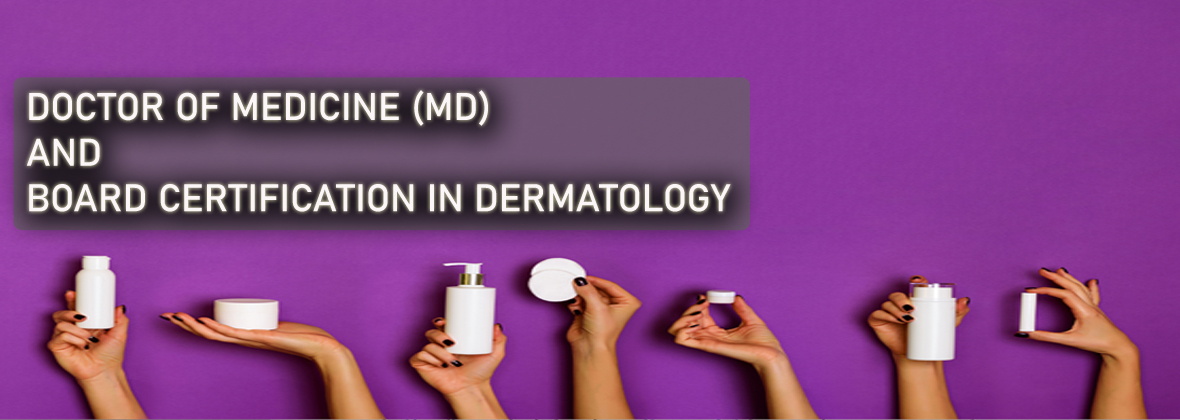
![]()
Dermatology is a rapidly advancing science which has gained much recognition worldwide in the recent past. In Sri Lanka too, Dermatology has evolved to be a much sought-after specialty over the past decade.
Dermatology is the study of diseases affecting the integumentary system comprising of diseases of skin, hair, nails and mucous membranes. The postgraduate Training programme in Dermatology provides knowledge in the diagnosis and managing common skin diseases, severe life-threatening skin diseases as well as cosmetically important skin problems that are increasingly encountered in clinical practice.
Men’s & Women’s Bodybuilding Food Supplements Pack 11minute bodyweight workout with fitness mass gain in body weight: what bodybuilding program.
This prospectus provides information on the regulations, objectives, curriculum, and guidelines for the teaching/learning /evaluation process leading to board certification in Dermatology.
![]()
The training programme has objectives related to knowledge and understanding (K), acquisition of skills (S), and professional behavior and attitudes (A). These objectives have been incorporated within eight outcomes of the training in Dermatology, which a trainee should achieve at the end of the MD (Dermatology) training programme.
These outcomes and the enabling KSAs are described below:
- Scientific basis of Practice
- Describe the development and the normal structure and function of the human skin; the interactions between the skin, the body and the mind; and the factors that may disturb these.
- Discuss the aetiology, pathology, symptoms and signs, natural history and prognosis of dermatological diseases in children, adolescents, adults and the aged.
- Apply the Scientific method at an adequate level to provide a rational basis for diagnosis, management and prevention of conditions in dermatological specialist practice as well as a wide range of medical diseases.
- Patient investigation and management
- Discuss the management of dermatological and medical conditions, including pharmacological, physical, nutritional and psychological therapies.
- Discuss diagnostic procedures in dermatology, their uses and limitations.
- Plan the diagnosis and management of conditions in dermatological specialist practice as well as a wide range of medical diseases.
- Initiate proper investigations and manage general medical problems in a dermatology setting.
- Manage medical emergencies in a dermatology setting.
- Involve the patients and the family in planning the management.
- Treat the patient to achieve optimal care without confining only to the dermatological problems.
- Clinical skills
- Obtain an accurate, organized and problem focused medical history.
- Perform an accurate dermatological examination and a complete physical examination.
- Interpret and integrate the history and physical examination findings to arrive at a diagnosis.
- Recognize general medical problems in dermatology patients.
- Perform interventional procedures mentioned in the curriculum for the diagnosis and management of dermatological and medical problems.
- Disease prevention and health promotion
- Apply the principles of health education, disease prevention, amelioration of suffering and disability, and rehabilitation where relevant.
- Understand the impact of chronic dermatological diseases on the patient, family and society
- Plan the prevention of conditions in dermatological specialist practice as well as a wide range of medical diseases.
- Effective communication and collaboration
- Communicate knowledge, opinion and health education to colleagues, paramedical staff, and the public in oral and written form.
- Discuss the problems related to dermatological diseases with patient, family and society in a sensitive manner.
- Work effectively in a team with other health care professionals and refer patients appropriately.
- Ethical and legal practice
- Apply the principles of ethics related to health care and the legal responsibilities of the medical profession in dermatological specialist practice.
- Critical thinking and Lifelong learning
- Interpret medical evidence in a critical and scientific manner and use information sources (including ICT) to pursue independent inquiry.
- Develop self-directed learning skills to assimilate the advances in knowledge which will occur over their working life.
- Initiate, conduct, and complete a research project.
- Reflective practice
- Recognize when a clinical problem exceeds its capacity to deal with it safely and efficiently, and appropriately request for help from others when required.
- Accept responsibility to maintain standards of medical practice at the highest possible level throughout the professional career.
![]()
- Candidates must hold the degree M.B.B.S. or an equivalent and registered with the Sri Lanka Medical Council.
- Candidates must have one-year service experience after the internship.
- Candidates must successfully pass the selection examination
Please refer to the relevant prospectus for the most up to date information. The prospectus of a particular programme contains official information pertaining to a programme approved by the Board of Management, University Senate and the University Grants Commission